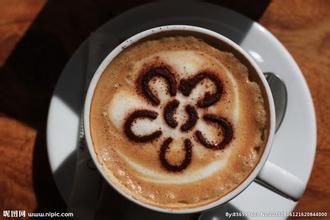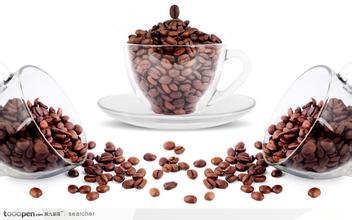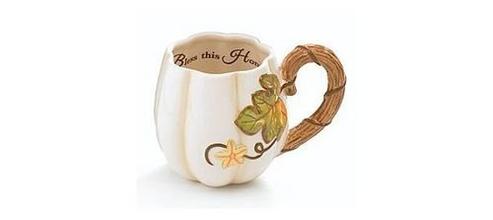Floral and fruity Panamanian coffee Jade Manor Coffee flavor and taste characteristics
Pacamara is like the acidity of a green apple, especially charming with sweet and milky desserts. Those who are afraid of sour touch less.
Kenya
The size of the beans is medium to large, the meat is thick and round, the taste is good, the taste is thick and full-bodied, the aroma is dominated by berries, the acidity is moderate, and exudes a unique flavor; the grade is divided into seven grades according to the size of the coffee beans, and the taste is divided into six grades from top to bottom. In the taste recommendation, "Kenya AA" is particularly well received.
Hawaiian Curry Fog
In the past, Kona, Hawaii was the pride of Hawaii, but after 2007, a new coffee producing area was developed 40 kilometers southeast of Kona. In addition to Guatemala Tibica, there is also the mysterious and ancient Brazilian Tibica, which makes the coffee beans in this area surpass Kona for four years in a row. Not only the appearance is lovely, but also more mellow.
Indonesia
Coffee from Sumatra, commonly known as Mantenin, has a complex aroma, a special soil flavor, sweetness of sugar and honey, chocolate, walnuts, hazelnuts, and the herbal flavor of Manning coffee. The wet aroma has a sweet "SARS" smell and aromatic beer smell, with darker malt aromas and spicy flavors. It is much brighter, more meticulous and vivid than ordinary beans in Sumatra. There is a deep malt flavor, as well as sugar and cream caramel, delicious, aromatic wood, cinnamon, and has the "cedar" flavor of chatelaulafite, a top red wine estate.
Panama has one of the highest volcanoes in Central America: Mount Baru. The Baru volcano has an altitude of more than 3474 meters, and the surrounding land is nutritious and balanced, providing sufficient conditions for the sowing and cultivation of Panamanian coffee. Cold air streams converge and flow above 2262 meters in the Central Mountains, creating a variety of microclimates in the Bouquete and Volcan regions. The microclimate of the Panamanian highlands, as well as fertile soil, abundant precipitation, suitable temperature and height, have become a unique resource for the cultivation of quality coffee in Panama.
Bokuidi is a small town in the westernmost province of Chiriki in Panama. it has always been the most high-profile coffee producing area in Panama, and the surrounding mountains are known as the "promised land for coffee". The coffee paradise of Panama has given birth to a lot of high-quality coffee and created many top coffee estates. there are numerous coffee stars, some of which are enough to make coffee gluttons salivate. This time, I would like to share with you the La Esmeralda Manor, that is, the Emerald Manor in Bokuidi. And Elida Manor Emerald Manor is famous for its Geisha variety. Rose summer seeds were discovered in the rose summer forests of Ethiopia in 1931 and sent to the Coffee Institute in Kenya, and then introduced to Uganda, Tanzania and Costa Rica, all mediocre. It was not until it was transplanted to Panama in the 1960s that it became a blockbuster after nearly half a century. Beat Bourbon, Kaddura, Kaduai and Tibica on BOP (Best of Panama) in 2005, 2006 and 2007, and won the championship for three years in a row.
In 2007, the International famous Bean Cup Test sponsored by the American Fine Coffee Association (SCAA) won the championship again, and the bidding price was sold at US $130 per pound, setting a record for the highest price in the history of competition beans. Rosa, a member of the Tibika family, grew into the king of coffee in the land of Panama after leaving Ethiopia. It successfully conquered the taste buds with rich floral and fruity aromas and bright acidity.

Important Notice :
前街咖啡 FrontStreet Coffee has moved to new addredd:
FrontStreet Coffee Address: 315,Donghua East Road,GuangZhou
Tel:020 38364473
- Prev

Introduction to the flavor and taste characteristics of coffee in Santa Rita Manor, Colombia
In 1823, at the request of the Peruvian Patriots and with the approval of Congress, Bolivar led Colombian troops into Peru to fight against the Spanish colonial army. In 1824, the Colombian and Peruvian coalition forces defeated the Spanish colonial army, and Peru gained independence. During the war with Bolivar's army in Peru, Santander took over as president and presided over the affairs of Colombia. Santander advocates building
- Next

Introduction to the characteristics of Santa Cruz Manor
Ecuador, formerly part of the Inca empire. It was colonized by Spain in 1532. Independence was declared on August 10, 1809, but it was still occupied by the Spanish colonial army. It was completely freed from Spanish colonial rule in 1822. Joined the Republic of Greater Columbia in 1825. After the disintegration of Great Colombia in 1830, the Republic of Ecuador was proclaimed. Since the founding of the people's Republic of China, the political situation of Ecuador has been in turmoil.
Related
- Does Rose Summer choose Blue, Green or Red? Detailed explanation of Rose Summer Coffee plots and Classification in Panamanian Jade Manor
- What is the difference between the origin, producing area, processing plant, cooperative and manor of coffee beans?
- How fine does the espresso powder fit? how to grind the espresso?
- Sca coffee roasting degree color card coffee roasting degree 8 roasting color values what do you mean?
- The practice of lattes: how to make lattes at home
- Introduction to Indonesian Fine Coffee beans-- Java Coffee producing area of Indonesian Arabica Coffee
- How much will the flavor of light and medium roasted rose summer be expressed? What baking level is rose summer suitable for?
- Introduction to the characteristics of washing, sun-drying or wet-planing coffee commonly used in Mantenin, Indonesia
- Price characteristics of Arabica Coffee Bean Starbucks introduction to Manning Coffee Bean Taste producing area Variety Manor
- What is the authentic Yega flavor? What are the flavor characteristics of the really excellent Yejasuffi coffee beans?

